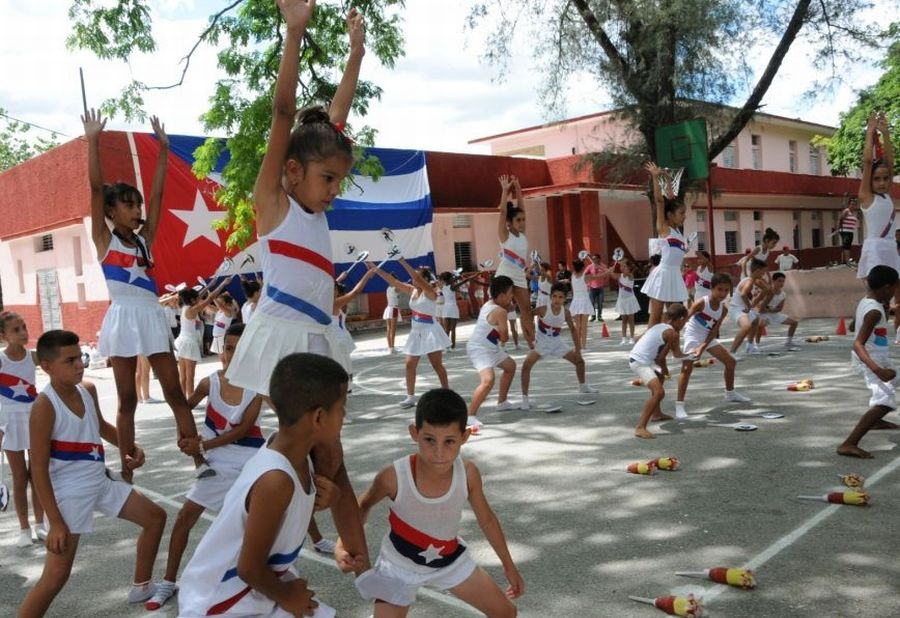
This past November 20, the world commemorated Universal Children's Day.
By Maritza Gutiérrez
This past November 20, the world commemorated Universal Children's Day.
On that date, but in 1989, the United Nations General Assembly approved the Convention on the Rights of the Child. The document contains 54 articles outlining the economic, social, civil, cultural and political rights of all children and adolescents.
The Convention on the Rights of the Child establishes a number of rights, including those related to life, health, education, the right to play, family life, protection from violence, freedom from discrimination, and the right to be heard.
The application of this convention is mandatory for the 194 states worldwide that have ratified it, and it defines the duties and responsibilities of parents, teachers, health professionals, as well as children.
However, today's world is far from the reality we aspire to: according to the United Nations, 385 million children live in extreme poverty, 264 million do not attend school, and 5.6 million children under the age of five died last year from preventable causes.
If we add to this those who have died and are dying as a result of the conflict, especially Palestinian children who today suffer the constant violation of their most sacred right, the right to life, we can understand the enormous need to raise awareness and take action so that all the world's children can enjoy their rights.
The slogan for 2024, "Listen to the future, defend children's rights," is an appropriate call to all UN Member States to protect all children so that they feel safe, healthy and educated, regardless of where they are born or where they come from.
Children and adolescents in Cuba
The Cuban Parliament approved this year the Comprehensive Policy for Children and Adolescents, a document that is part of a national context of reflection and transformation of social policies that seeks to guarantee the rights and opportunities of children and adolescents in the country, in accordance with international commitments to human rights and sustainable development.
In a world where social, economic and environmental challenges are becoming increasingly complex, Cuba recognizes the importance of caring for and empowering its future generation, so the policy considers aspects related to education, health, culture, recreation and the active participation of young people in the construction of their reality.
Central pillars of the policy
One of the central pillars of the policy is to guarantee the right to quality education accessible to all children and young people. In this regard, innovative strategies are proposed to improve education systems and promote holistic learning, including not only academic knowledge but also socio-emotional and life skills.
Promoting the health and well-being of children and adolescents is also critical. The policy provides guidelines for strengthening health services, promoting healthy lifestyles and preventing risky behaviors.
It also emphasizes the importance of social inclusion and equity. It aims to ensure that all children and young people, regardless of their socio-economic background, have access to opportunities that enable them to develop to their full potential. This includes family support programs and initiatives that promote gender equality and diversity.
Participation and empowerment
A fundamental component of the Comprehensive Policy for Children and Adolescents is the promotion of the active participation of young people. The policy recognizes that young people should be considered key actors in the construction of their own realities, and therefore promotes their involvement in decision-making that affects them. It provides for spaces for dialogue and consultation, as well as the creation of platforms where they can express their concerns and proposals.
Challenges and expectations
Despite the significant progress represented by this policy, its implementation is not without its challenges: it is essential to ensure the commitment of all sectors of society, including local governments, educational institutions, communities and families, to carry out the necessary actions to guarantee its effectiveness.
In conclusion, the approval of the Comprehensive Policy for Children and Adolescents in Cuba is a transcendental milestone that reflects the country's commitment to the future of its youngest citizens. By prioritizing their rights and needs, Cuba is not only investing in their social development, but also building a more just and equitable future for all. Attention to children and adolescents is undoubtedly an investment in the long-term stability and prosperity of the nation.

